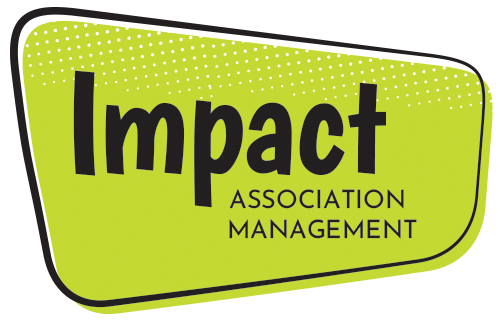By, Rich Santana, Senior Meeting Planner, Impact AMC
IMEX America is the largest tradeshow in the United States geared specifically for the global meetings, events, and incentive travel industry. From October 10-13, 2022, over 12,000 suppliers and meetings/events professionals from around the world met in Las Vegas to learn about the latest trends in the industry, as well as network with other professionals and learn more about destinations, hotel properties, and the latest event technology.
As an attendee at this year’s event, there were a few key takeaways that I believe are particularly relevant to the associations we work with at Impact.
Competition for meeting & sleeping rooms is fierce
From March 2020 thru most of 2021, countless meetings and events were cancelled throughout the country due to the pandemic. A lot of hotels during this time decided that instead of outright cancelling a meeting, they would move the meeting date out two or three years in the future in the hopes that, at that time, it would be safe to have live events again. Fast forward to today and hotels are seeing almost pre-pandemic levels of new meeting space requests, but a lot of hotels also have the rebooked meetings on their calendars as well.
Do not be surprised when your RFP for your meeting comes back stating there is no availability at your targeted hotels. If that wasn’t bad enough, hotels are seeing a large increase in transient travel and that cuts into the number of available rooms hotels are able to offer groups for meetings & events. Both trends are viewed as short term problems for meeting groups but should be kept in mind when sending out RFPs for events.
Hotels are risk adverse when it comes to contracting
The fear of another variant or an economic downturn has caused hotels to take a more protective stance when it comes to negotiating contracts. Meeting Planners are seeing less concessions being offered and stricter clauses included in their contracts. Many hotels have started asking for at least 90% attrition rates when it comes to sleeping room blocks, stricter cancellation schedules, and offering less flexibility when it comes to the deadline to make hotel reservations at the group rate.
While there is always room to negotiate, Meeting Planners are finding out the hard way that hotels are taking a tougher stance when it comes to these specific items in a contract. Having historical data on your event may help alleviate this pressure. Providing hotels with information showing that your meeting has filled room blocks of similar size in the past, met your Food & Beverage minimums, and hit your attendance numbers can help put aside some of the hotel’s fears and help negotiate better terms for your meeting.
Staffing is a national issue
Many hotels were forced to let go of staff in 2020 and many have not been able to recover since. Today, hotels are understaffed and that directly affects how they can service meetings and events. A growing complaint amongst Meeting Planners is the noticeable decrease in the quality of service many hotels can provide due to inadequate staff on hand.
Before you finalize your hotel contract, make sure that you discuss with the hotel what, if any limitations exist due to staffing shortages and how they intend to mitigate the risk to your meeting. Being fully aware of any shortcomings on the hotel side will allow you to be better prepared for situations that may require additional resources to be brought in as well as manage the expectations of your attendees in advance.
Learn how Impact’s team of event management professionals can help you navigate the event-specific challenges of a post-COVID world.

